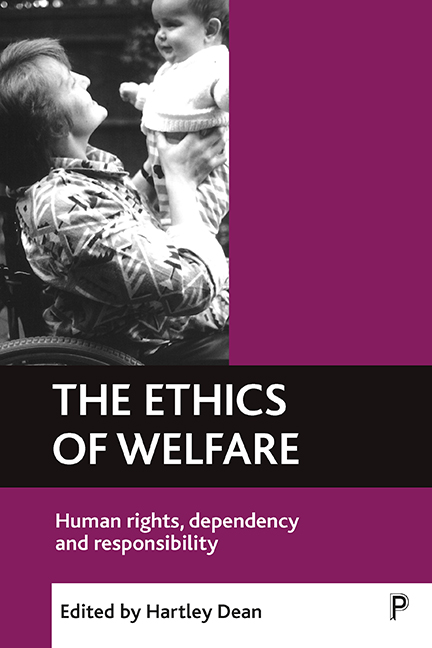nine - New Labour, citizenship and responsibility: family, community and the obscuring of social relations
Published online by Cambridge University Press: 20 January 2022
Summary
The preceding chapters of this book have opened up discussion of political, popular, welfare provider and welfare user discourses of citizenship and responsibility. The particular concern of this chapter is with New Labour’s ‘third way’ discourse of citizenship and responsibility in relation to family and community. It explores issues of responsibility, family and community by drawing on a UK-based qualitative study of a very particular sample, a group that could be characterised as ‘irresponsible citizens’. While the primary concern is with New Labour, this is not to ignore the fact that New Labour’s emphasis on responsibility can be located in the broader context of what I here describe as a dominant paradigm. The emphasis on responsibility in New Right and communitarian accounts of citizenship, such as those by Mead (1986) and Etzioni (1995) respectively, and in definitions of the ‘third way’ (see Giddens, 1994, 1998; Blair, 1998) is critically documented elsewhere (for example, Lister, 1997; Dean, 1999, 2002; Dean with Melrose, 1999; Dwyer, 2000). New Labour’s discourse of responsibility, although contested, forms part of a broader view of citizenship which Jordan (1998) has described as the ‘Blair/Clinton orthodoxy’ and Standing (2002) as ‘the new paternalism’. Themes of obligation in relation to family, community and work are central in this dominant paradigm, as is the implicit view of there being a contemporary deficit of responsibility. In particular, there is a belief that a welfare ethos exists which encourages the poor to avoid their obligations as citizens to be educated, to work, to support their families and to obey the law (Wilson, 1994). Hence, the interest in the research to which this chapter relates in a sample of ostensibly ‘irresponsible citizens’.
The sample was made up of people who had received a court summons for non-payment of local taxation. During the late 1980s and early 1990s, the UK saw major changes to local taxation with the longstanding system of general rates, based on property values, being replaced in 1989/1990 by the community charge, based on individual residency (colloquially dubbed the ‘poll tax’), which in turn was replaced in 1993 by council tax. Council tax, which is based on a combination of property values and individual residency, remains the contemporary system of local taxation used to finance services provided by municipal authorities.
- Type
- Chapter
- Information
- The Ethics of WelfareHuman Rights, Dependency and Responsibility, pp. 173 - 190Publisher: Bristol University PressPrint publication year: 2004



